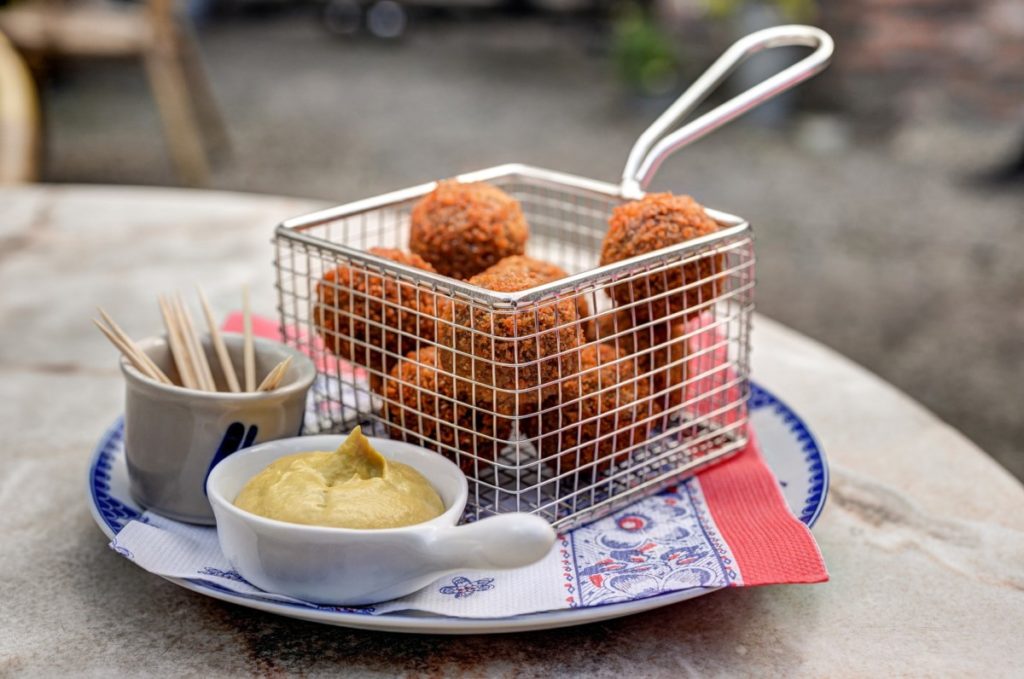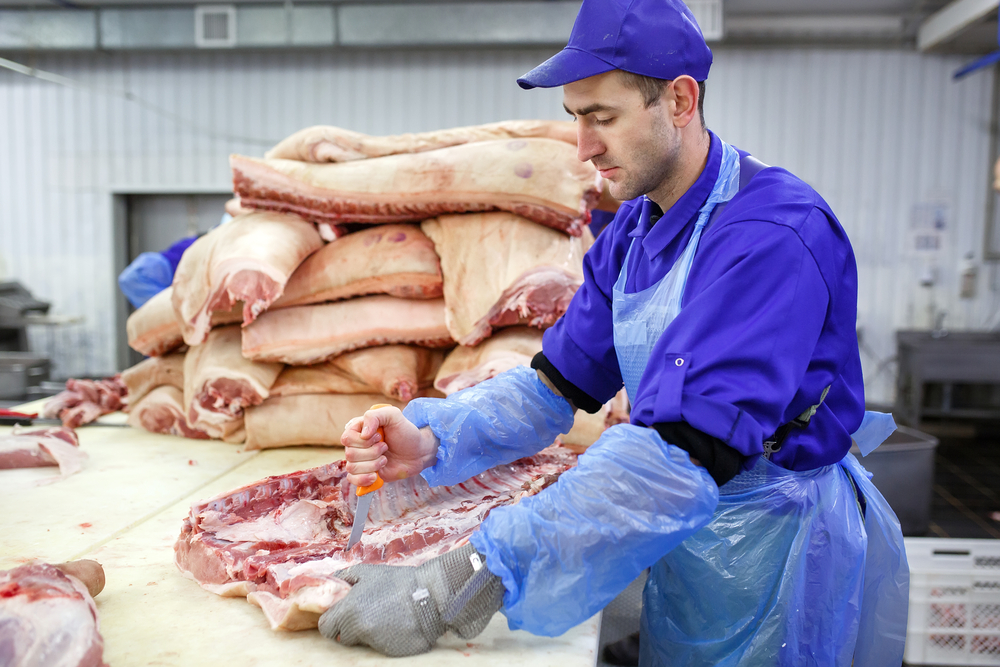A The Guardian exposé has revealed the appalling situation of precarious workers in the European meat industry, including at Dutch meat plants.
In 2020 (no introductions needed), meat plants across Europe came under scrutiny for frequent COVID-19 outbreaks.
From some companies not having the data to trace the spread of the disease, to the extreme vulnerability of some workers, there was something clearly wrong with the way cheap meat was being supplied to the Netherlands’ supermarkets.
Unscrupulous practices
But why were some Dutch meant plant workers more vulnerable than others? And why were they more at risk when it came to COVID-19? The exposé, for which officials, labour experts and workers were interviewed, point to the practice of hiring workers through agencies.

Subcontracted workers don’t enjoy the protection of employed work, which leads to exploitation and rights abuses. Most are migrants from countries where wages are low, and some can’t read and/or are unaware of their rights.
They are also more present in European meat plants than anywhere else in the developed world, according to the assistant general of the International Union of Food Workers quoted by The Guardian.
Precarious workers
Living as a precarious worker means making up to 50% less than other employees performing the same job. It also often means not having parental leave, sick pay, and living in cramped and shabby accommodations. How could they socially distance or stay at home when with COVID-19 symptoms?
The living situation of migrant workers in The Netherlands was exposed on Dutch TV in an episode of Dany’s Wereld. The programme also alerted to the culture of fear that prevents migrants from speaking up about the abuses they undergo.
International vs. Dutch
A Romanian working at a Dutch meat plant interviewed for the exposé painted a very different picture compared to workers who are directly employed. These workers perform the same functions, but enjoy more rights, stability and hours. They are also mainly Dutch.
This was backed up by The Guardian’s investigation, which uncovered many allegations of migrants working under abusive conditions in The Netherlands.
The meat industry in The Netherlands
The Netherlands is the largest meat exporter in the EU, a success supported by the flow of low-cost migrant labour. Unsurprisingly, the Dutch labour market is the fastest-growing flexible labour market in Europe. According to a Guardian follow-up story, almost 40% of workers here are either self-employed or on temporary contracts.
In 2020, the Dutch government released a report highlighting the poor regulation and lack of inspections at agencies. With 49% of migrant workers in the Netherlands employed through agencies, the scale of the problem seems unprecedented.

The Guardian reports that although not all agencies victimise migrant workers, some deliberately target them. Their reliance on agencies for housing, healthcare, and transport costs puts them in a position of extreme vulnerability, Dutch NGO FairWork also found.
Some agencies go as far as declaring bankruptcy to avoid paying workers, only to later pop back up under a new name.
Where do we go from here?
Before giving in to the famous Dutch thirst for bureaucracy and call for better regulation, the German model should be considered: a total ban on all forms of subcontracting in the meat sector. Exercising our power as consumers and pressuring supermarkets to act is always a valid avenue too.
Although the work that needs to be done at the political level goes without saying, a more personal reflection seems fitting here too. No, I’m not going to lecture you on the environment and cows’ crazy high methane emissions. I will however share one of the exposé’s interviewees, Martijn Huysmans, assistant professor at Utrecht University School of Economics, brilliant point:
“In Dutch stores, you can see what kind of life an animal has had – we have a star system for animal welfare. But ironically, you can’t see what conditions people in the slaughterhouse were working under.”
What are your thoughts on the Dutch meat industry? Tell us in the comments below!
Feature Image: robert_g/Depositphotos




